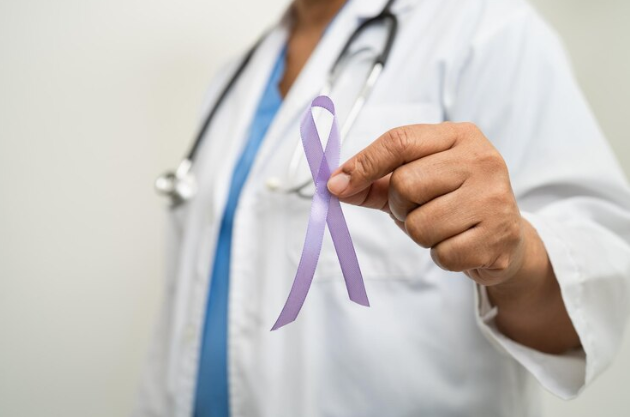Peritoneal cancer, though rare, is one of the most challenging aspects in the field of oncology. It arises in the peritoneum, which is the lining of your abdominal cavity, and it is often undetected until it is advanced stage. This indolent course makes comprehension of the disease’s symptomatology important regarding early diagnosis.
This is the blog post in which we will look at peritoneal cancer in detail – its definition, and its symptoms, and get to meet people who were diagnosed with this type of cancer. We will also explain the importance of early intervention and suggest some ways to deal with it as well as how to prevent such situations from occurring in the first place, both for yourself and your closest ones.

What is Peritoneal Cancer?
Peritoneal cancer occurs in the peritoneum, a thin layer of tissue that wraps around organs in the abdominal cavity. It is generally seen as a metastatic malignancy as it commonly arises from a serous papillary carcinoma primary tumor of either ovary or colon origin.
Such patients may present with peritoneal cancer features only owing to the late diagnosis of the cancer. The peritoneum serves a further function in protecting structures within the body, however, when this layer is compromised by malignant cells, its function is lost.
Unfortunately, and unlike common cancers, peritoneal cancer is less commonly the subject of dialogue. One would be forced to remain in the darkness if one doesn’t understand where and how peritoneal cancer arises. There is no single explanation of how such a terrible disease descends upon its host.
The nature of things has always suggested that people wait for the situation to improve. Luckily as research in this domain grows so does the knowledge around this condition and this may provoke valuable discussions that would lead to effective treatment procedures for individual patients.
Symptoms of Peritoneal Cancer
As is so often the case with most internal malignancies, peritoneal cancer more often than not has signs that are easily missed. One of the more common complaints pertains to abdominal pain that can be extreme and often is accompanied by dissatisfactory describes-centering dull aches. The pain itself is quite evasive at times.
Other symptoms include an inexplicable feeling of fullness, even after minimal food intake, and malignant caducity causing an abnormally great weight change. The swelling may be caused by the accumulation of large amounts of gas in the abdomen, causing tension in the tissues and subsequently pain.
But don’t worry, many other symptoms are more prevalent like changes in bowel movements without the necessity of any diet alterations to name a few factors.
Another set of warning signs includes extreme tiredness (flyers like only made worse by extensive relaxation period cupboards).
Other symptoms could be accompanied by other signs such as abnormal menstruation and pelvic compression in women, or unexplained weight loss in men with pelvic compression.
Ignoring and risking further complications with symptoms brings more danger than it is worth and all because the combination of yellow rings and red flags brings both swift treatment and early diagnosis.
Real Life Stories: Individuals’ Experience with Peritoneal Cancer
At the age of 45, Sarah began putting on weight and felt abdominal pains. Thrust into many doctor appointments, Sarah got a shocking diagnosis of peritoneal cancer. Though she felt alone, she soon got an online community that facilitated her journey a little bit easier.
Then there is Tom’s story. After five long years of battling the disease and finally, in November 2019, five years after being diagnosed at 55 years of age, rushed in agony to the hospital and underwent multiple chemotherapy sessions, rounds of surgeries, and clinical trials. He endured the physical and mental suffering but remained upbeat and continued to enjoy life.
A 27-year-old nurse, Andrea too diagnosed with peritoneal cancer. New to her career, Andrea started having pain around her stomach and later in testing found out, she had stage 4 peritoneal cancer. While most would have groaned in the face of such news, Andrea was inspired to battle the illness and sought alternative treatment while still clinging to the norms.
These stories are just a pinch from the amongst many, other real-life accounts of people bearing the mark of peritoneal cancer. Each story is different yet it pursues the pains and gains witnessed by individuals having the disease.
Peritoneal cancer is a form of cancer that targets the peritoneal cavity, which is a membrane that lines the abdominal region. It may start in the peritoneum or it can be as a result of spreading from other organs like the ovaries or colon. Symptoms may include pain in the abdomen, a feeling of fullness, alterations in the normal pattern of bowel movements, and an unexplained increase or decrease in weight.
Early diagnosis, just like with many other kinds of cancers, is especially important for the cancerous disease to be completely treated. In his testimony, he continuously shares such things as the triumph of the human spirit. Where other people would have seen hopelessness, he found hope through clinical trials and various treatments.
Maria’s experience also serves to stress the need to be aware of one’s body. Her elementary signs could be considered niggling gastrointestinal complaints but they progressed rapidly. After being diagnosed early, she received effective treatment and currently advocates the same in the community where she lives.
While no two accounts are the same, these accounts are tied together by the same struggles and the same success over the disease. The
These accounts represent the willpower of these people and inspire many people today who are going through similar situations.
Importance of Early Detection and Treatment
That cancer peritoneal cancer if it’s diagnosed at an earlier stage, treatment can help improve the overall quality and life expectancy of patients. The sooner the tissue is implanted, the the greater number of options for treatment appears.
Symptoms tend to be nonspecific in many cases so self-awareness is crucial. As well as flares or unexplained abdominal distension for reasons one cannot comprehend, they should not be disregarded.
Also, making regular visits to the doctors or communicating with one when needed is quite important. Or if you have had cancer(s) of the same sort or have risk factors don’t keep quiet.
An effective treatment approach improves survival and preserves life quality over the course of therapy. When dealing with such a fierce illness, every second is precious.
Knowledge of the peritoneal cancer progression model allows choosing the appropriate treatment strategies and alternatives. Patients with a nomothetic approach who anticipate the onset of symptomatology are less likely to face difficulties in the course of their treatment.
Do not forget that during these difficult days, assistance from family and friends is essential since it offers both emotional and practical support and assistance throughout the day.
Coping with Peritoneal Cancer: Support and Resources
Peritoneal cancer is challenging and can be lonely to face, however, help is available. It can be reassuring to know that others understand what you are experiencing.
Support groups, both face-to-face and virtual, provide an opportunity to vent and talk about feelings and issues. Listening to the experiences of people who are in the same boat helps to cope with cancer’s emotional roller coaster.
Another important resource is professional counseling. Oncology therapists are key in helping people cope with the complicated emotions brought about by both the diagnosis and the actual treatment.
Do not dismiss the role of family or friends. Some parents and friends want to help but do not know how. If one seeks help, it brings them closer during difficult times.
Also, many organizations offer education, funds as well as advocacy for patients. By looking into these options, you are able to manage your condition and build a community around you at the same time.
Prevention Tips for Peritoneal Cancer
It may not be possible to fully prevent peritoneal cancer, however, some choices made in day-to-day life can help lower the chances of developing the cancer.
Being overweight or obese is a dangerous sign. And so, eating healthy and exercising regularly can help prevent obesity, which is associated with numerous complications, including cancer.
Other than the above, regular check-ups are important too. If other relevant diseases, ovarian, or colorectal cancer for instance, are diagnosed early, the extent of damage can be minimized and greater risks can be avoided in the future.
You can think about undergoing genetic tests if you have many relatives who have had cancers linked with peritoneal cancer. With knowledge, there can be eradication of a cancer such as this with preventive surgery in susceptible patients.
Decrease the number of ways that one may come into contact with some of the dangerous chemicals present in some kinds of work or products. Controlling what goes into your body has a significant impact on one’s health and wellness. It is always better to be able to make minor changes today which will result in a positive outcome tomorrow.
Conclusion
Of all the cancer types, peritoneal cancer is perhaps one of the most vexing types of cancer; preventive education and early recognition of symptoms are of primary importance. Actual patients who struggle with this disease tell the stories of not only suffering but of recovery from the sources most unforeseen.
Through examining the patients, it is proven that early detection can bring about better treatment outcomes which is why check-ups plus education about prevention of the disease is encouraged.
In the case of peritoneal cancer, it is essential to deploy support mechanisms because patients try to go through the entire ordeal of management alone. During hard times, support such as support groups can help one connect or provide solace.
It is believed that even taking preventative measures by way of modifying lifestyle may eliminate some of the contributing factors of the specific type of cancer.



